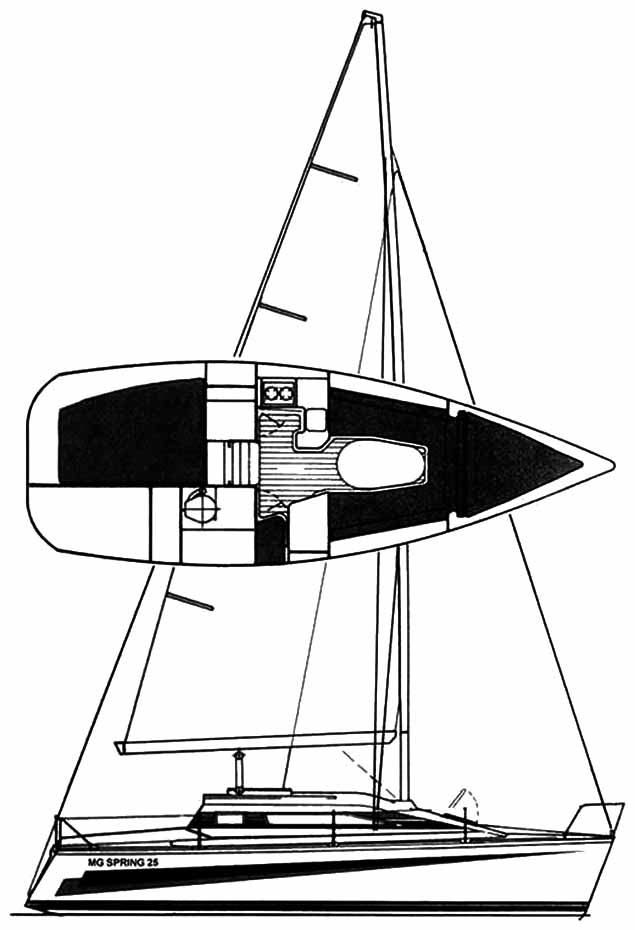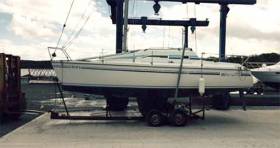Displaying items by tag: MG 25
MG 25 Yacht for Sale From Tony Castro is Still Ahead of The Times
Even today, it’s rarely enough that we can say of some boats for sale on Afloat.ie that she’s “As Seen On TV” writes W M Nixon. Yet in the case of the Tony Castro-designed MG Spring 25, the fame of the silver screen is certainly true, but it’s the least of the claims to being something special
Once upon a time in the late 1980s, there was a TV soap called Howard’s Way based around a boatyard in the south of England which was trying to expand through going into cruiser series production. The MG Spring 25 was created for this project by the innovative Tony Castro, who had first set up in business in Crosshaven after serving his time with Ron Holland.
But while the MG Spring 25 may have been created as the central prop for a TV series, she was so good that she went into proper production in Australia and Brazil as well as the UK. As for Tony Castro, for Irish sailors one of the more enduring Castro creations is the Cork 1720 sportsboat of 1994. And the MG Spring 25 of a few years earlier deserves to be favourably remembered for much more than (or should that be “despite”) her Showbiz connections, as this big-hearted little boat has more clever and sensible ideas in her 25ft length than some of today’s latest designs.

Not least of the good ideas is twin rudders. These are the norm for broad-sterned craft such as the world-beating JPK 10.80 in 2016, yet in 1998 when this particular MG Spring 25 was built, they were stilled looked upon as something very strange.
In creating the design, another temptation was to provide a lifting keel in order to broaden cruising area and trailerability options. But as some owners will ruefully tell you, lifting keels can jam, and on balance it’s best to have as little in the way of moving parts in the keel department as possible. So Tony Castro cleverly got round the shoal draft requirement by providing a wing keel which does the business of a deeper keel, yet does it with just 3ft draft, and as a bonus the boat can dry out standing upright.
Yet despite the underwater accoutrements, she has a good performance, she has full standing headroom, and if you really pushed it, she can sleep six which makes her an ideal family cruiser. At €12,000, this MG Spring 25 is definitely well worth a visit to Lough Erne for a look-see. Full advert here
























































